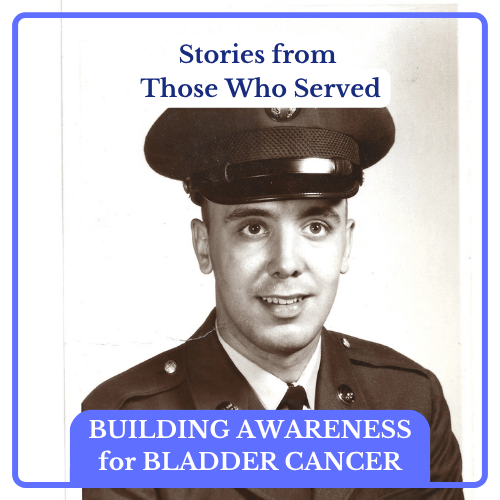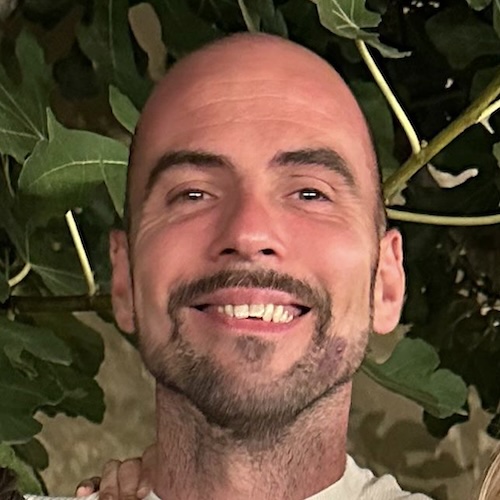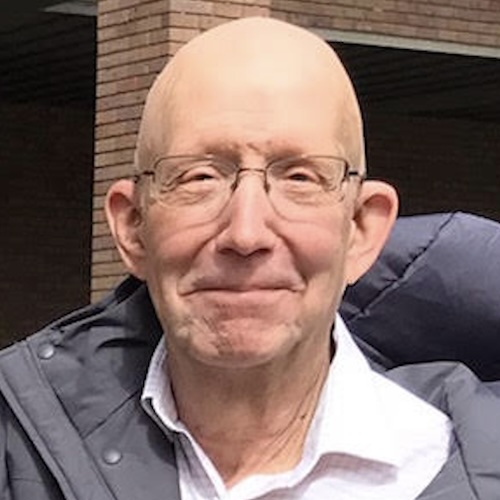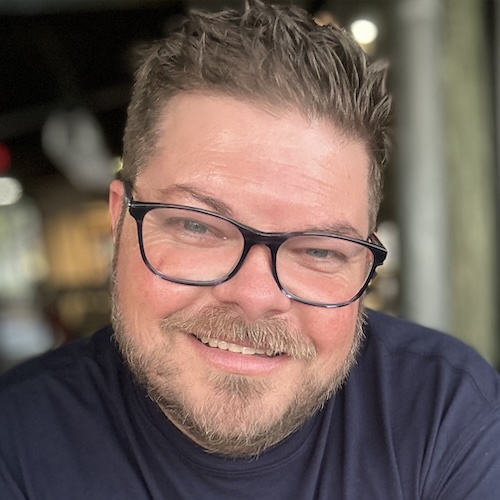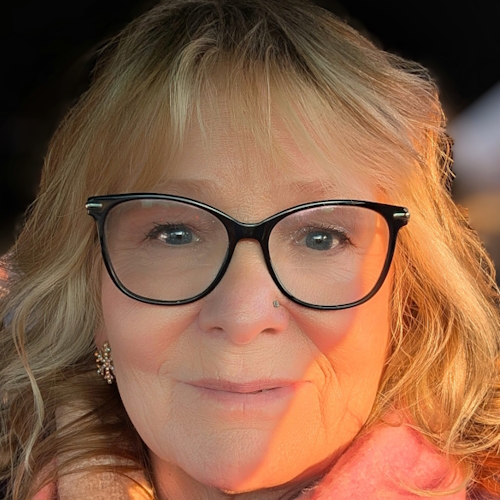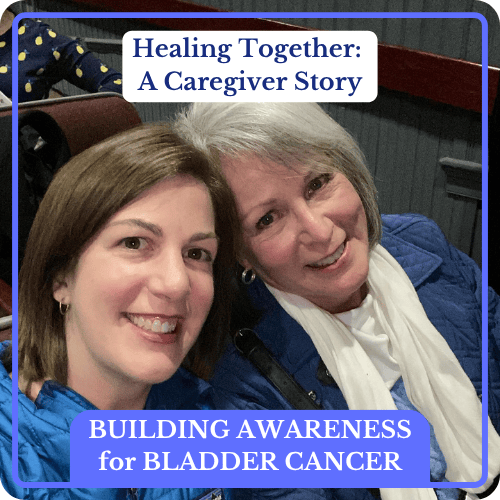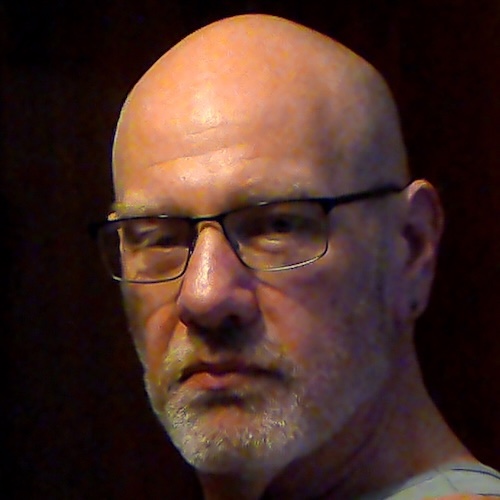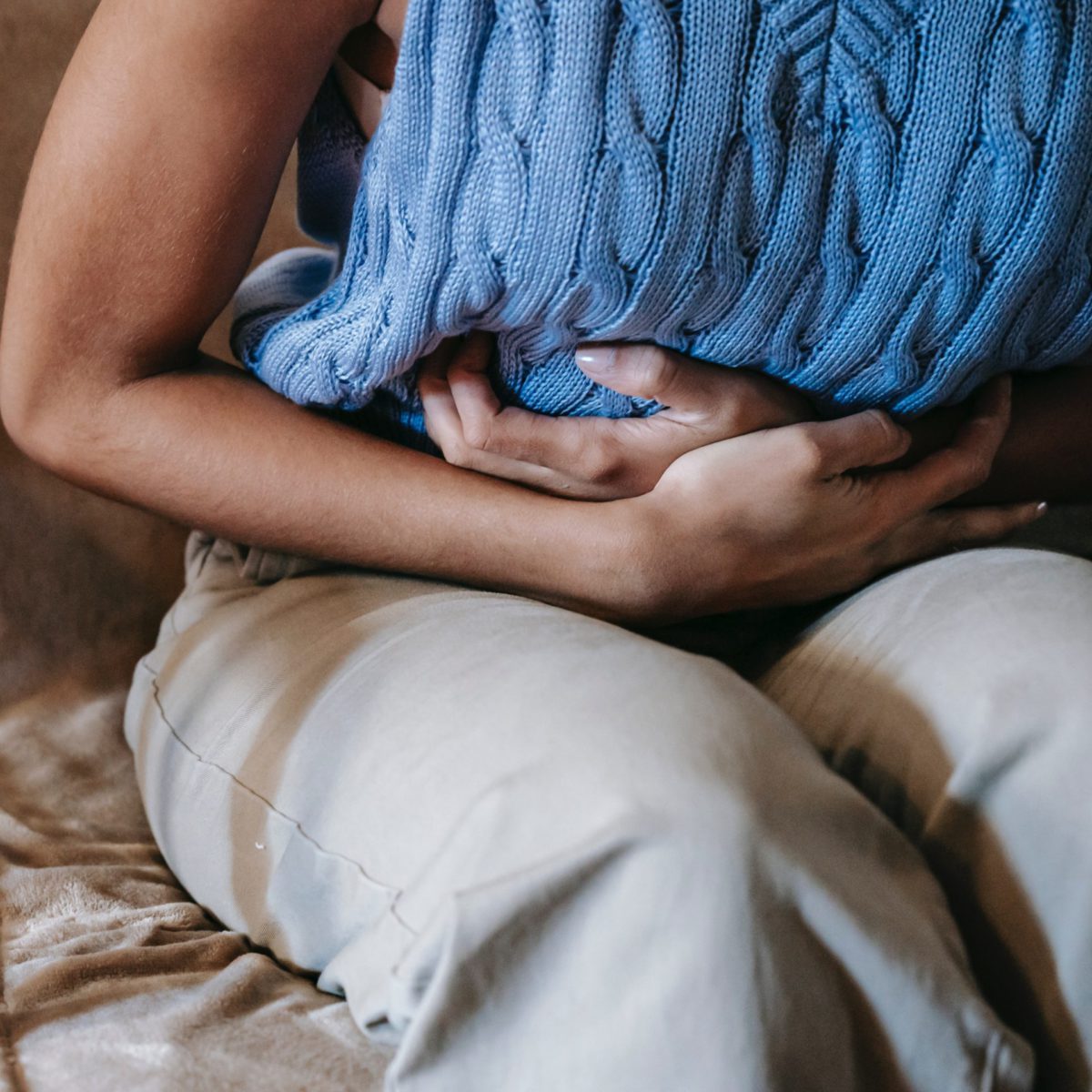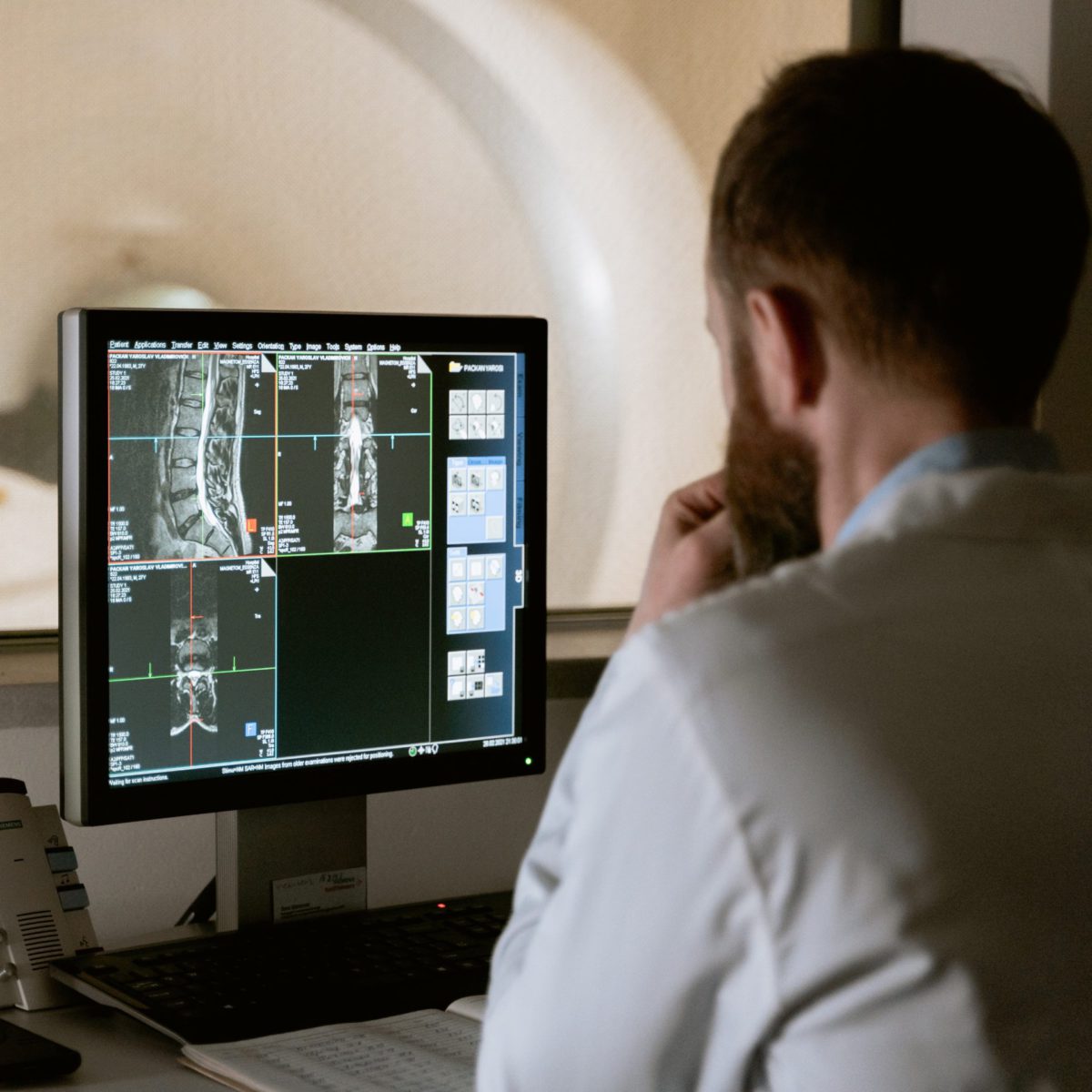The Lasting Impact: Bladder Cancer in Those Who Served
The Many Faces of Bladder Cancer: Voices of Strength and Resilience
Our series, The Many Faces of Bladder Cancer: Voices of Strength and Resilience, shares genuine stories from people battling bladder cancer. These powerful stories highlight the experiences and the challenges faced by patients and survivors. This series intends to foster hope, understanding, and a fresh outlook on dealing with this condition while raising bladder cancer awareness.
Veterans exposed to toxic chemicals have a higher risk of bladder cancer. This story honors their service while shedding light on their unique challenges, the importance of early detection, and the support available for those affected.
Wally’s story is one of grit, love, and moving forward, even when life throws curveballs. A proud veteran, Wally spent decades serving his country until his retirement in 2007.
While working a high-level assignment at the Pentagon in the early 2000s, Wally noticed signs of an enlarged prostate. Then came the blood in his urine. At first, he chalked it up to his prostate issues again, but a scope revealed something far more serious: a massive tumor in his bladder.
A bladder cancer diagnosis was about to change everything.
Thank you to Imerman Angels for their partnership. Imerman Angels is here to provide comfort and understanding for all cancer fighters, survivors, previvors, and care partners through a personalized, one-on-one connection with someone who has been there.
This interview has been edited for clarity and length. This is not medical advice. Please consult with your healthcare provider to make treatment decisions.
Interviewed by: Taylor Scheib
Edited by: Katrina Villareal
- Introduction
- Life in Service
- When I First Noticed Something Was Wrong
- The Moment Everything Changed
- Going on Bladder Cancer Treatment
- The Cancer Came Back
- The Importance of Receiving Great Cancer Care
- Processing the Return of the Cancer
- How My Family Has Supported Me
- What Cancer Has Taught Me
- My Message to You
I found myself inside the Wall when Berlin was West Berlin and we were surrounded by East Berlin and the Russians.
Introduction
I’m from California. I had bladder cancer and prostate cancer. My life has been very up and down. It takes its toll on the body and the mind.
Life in Service
I went into the service in 1967. I volunteered for a two-year RA, which meant that they were going to send me to Warrant Officer helicopter school. They sent us first to Fort Polk, Louisiana, for basic training and then to Fort Ord, California, for advanced infantry training.
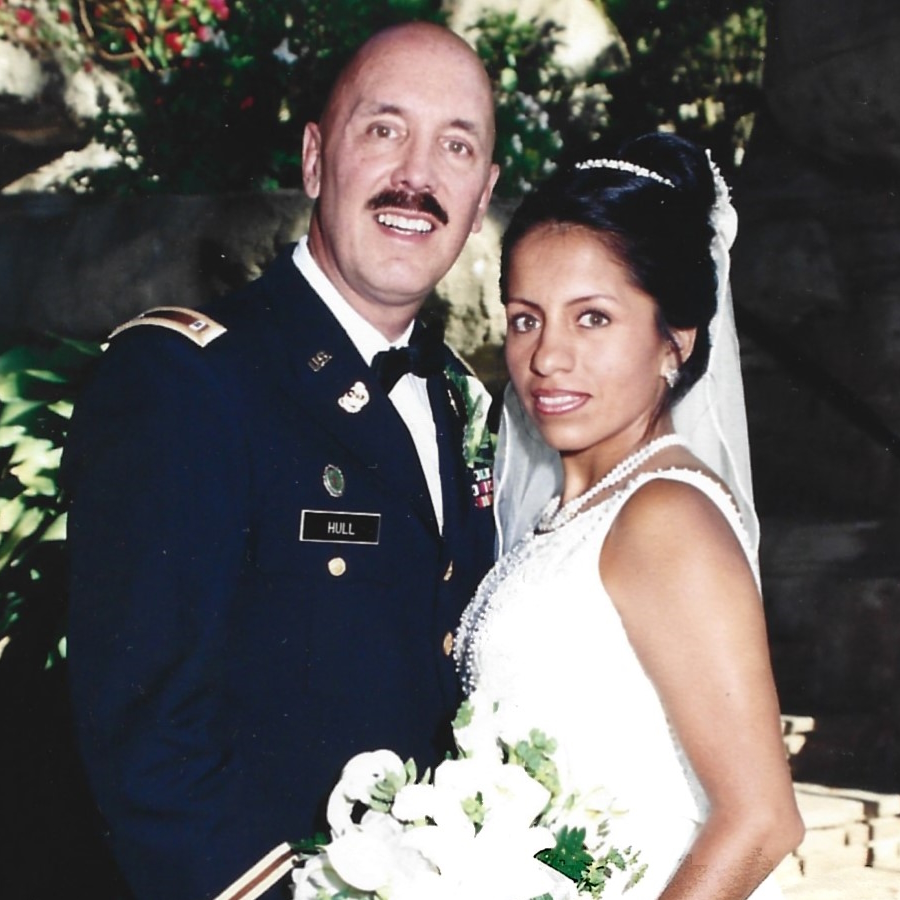
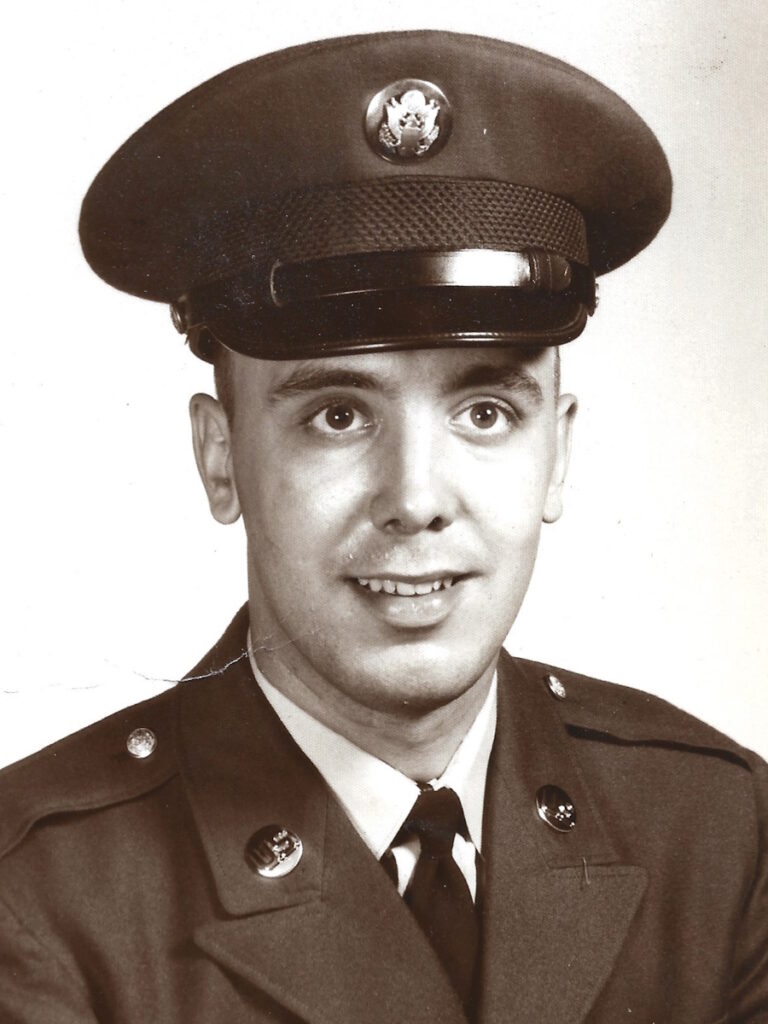
I was supposed to go to Fort Benning, but for some reason, they closed it down at that time, so they sent all of the Warrant Officer flight candidates to different posts until they opened the fort. They happened to send me to Berlin. I found myself inside the Wall when Berlin was West Berlin and we were surrounded by East Berlin and the Russians. I did two years in Berlin and ended up ETSing, which means getting out of the military, while in Berlin. I attended university in Berlin and studied music.
While in Berlin, I was in the infantry in the beginning and then I decided that I could use my musical skills, so I got a job playing saxophone and flute with the Army Band in Berlin. My first two years in the Military were very fulfilling, but when I got out, I decided that I wanted to stay out for a while. I got out in ’69. I finished college, taught music, and played in bands, but then I thought I wanted to be a policeman.
I went to California and joined the Los Angeles Police Department (LAPD). My buddy, who was my training officer, came up to me and said, “Hey, Wally. You were in the Army and I’m the platoon sergeant down at this Military Police (MP) Detachment. Would you like to go down there?” I didn’t want to go back in the Military, but I said, “Sure, I’ll come down and I’ll help you out.”
I had so much pride in my career…Teamwork is the number one thing I learned.
I was his squad leader and this was a combat MP group in the National Guard. I did that for two years. Then I went to the Army Criminal Investigation Division (CID) in 1985. When you go to CID, that’s a career move and you’re going to stay there forever. I stayed through 2007 when I retired from the Army.
I traveled a lot because the CID travels a lot. We did a lot of investigations all over the world. I went to Panama after the military dictator Manuel Noriega was removed. I was able to go back to the Pentagon. I was the OIC of the protective detail for Gen. Richard Myers, who was chairman of the Joint Chiefs of Staff. Every day, we would take the Chairman to the White House to see the President. I love the police, but that particular job was the best job I’ve ever had.
I had so much pride in my career. I was a member of the 316th MP Detachment CID, which is located in Bell, California. We became very close. The Military was our common bond. Everybody in that group has been a police officer. In those days, you had to be a police officer to get into the CID because they wanted someone who was already trained, because you didn’t have active duty exposure.
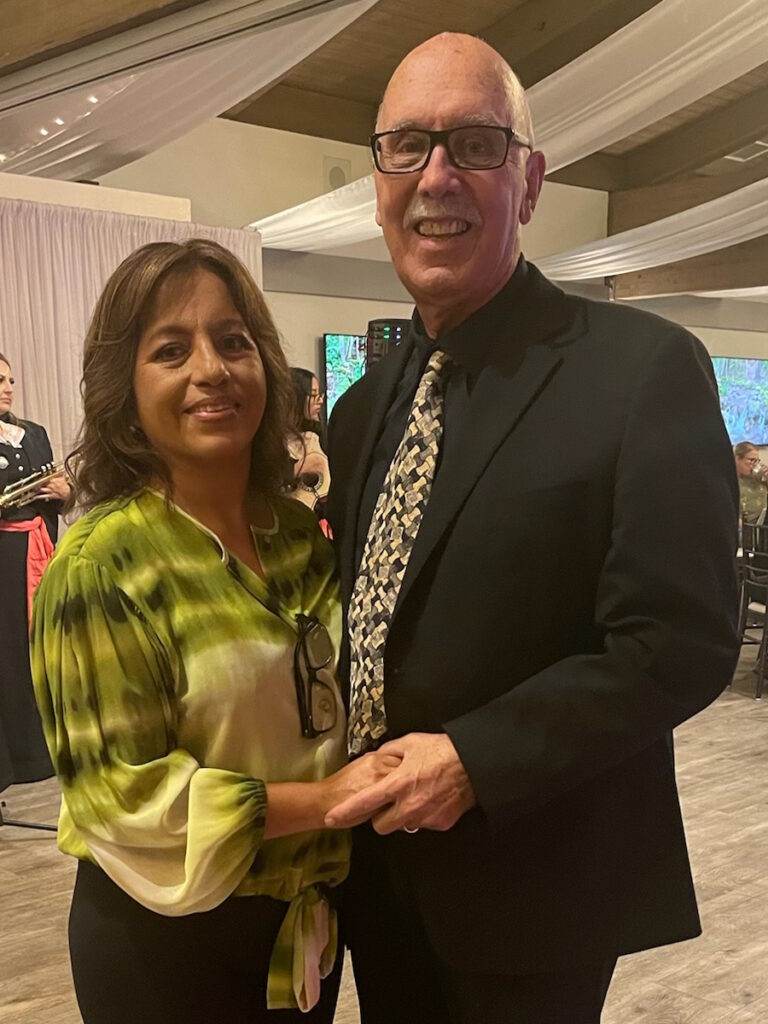
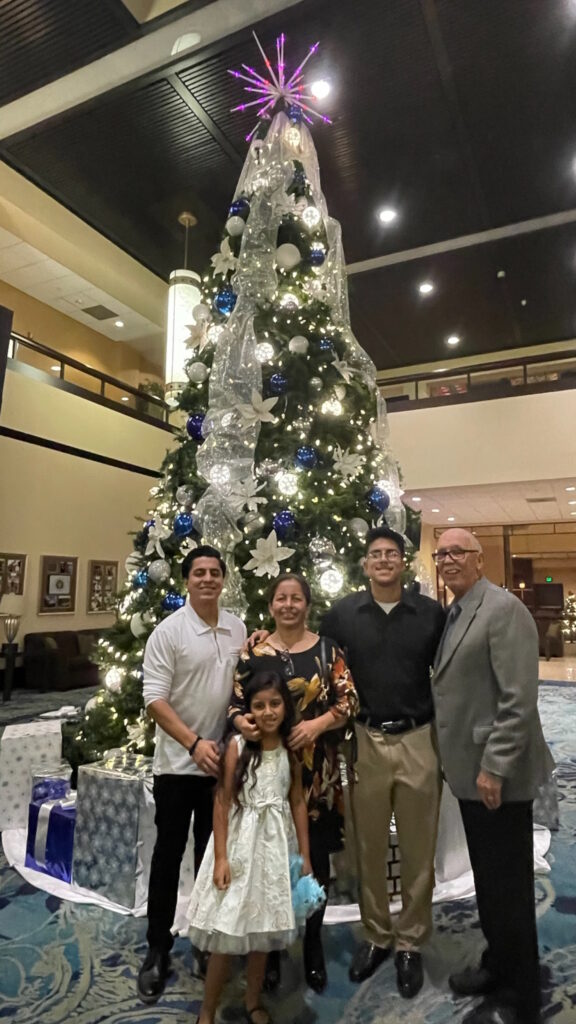
Back in those days in Berlin, there were three countries inside the wall: England, France, and the United States. In ‘68, the Russians invaded Czechoslovakia and they also put a brigade of tanks all around Berlin. At that point, they had given us 16 or 24 hours of life, and then we would be taken out. You never knew what was happening in Berlin. I saw people trying to escape from the East and they got killed trying to jump over the Wall. They never made it to the Wall though because the East side had a big area that was barren and they had machine gunners in the towers.
Berlin was beautiful on the inside. Unfortunately, the United States got taken on that deal because we got the old part of Berlin that had been bombed out, so the United States, France, and England had to rebuild all of that. The Russians had the nice parts. After I got out of the Army, I stayed in Berlin as a student and it was quite interesting. I worked as a bartender in a German pub and as a waiter in the Army officers’ club.
Teamwork is the number one thing I learned. Everybody wants to do everything on their own. They think they’re bad dudes. But when you need the team, you have to retrain yourself and that’s what they did in the Military in those days. When I went to Warrant Officer school, it was very team-oriented in a sense and it was quite good. It helped me later on in life because when I became a policeman, I had to work in a team. You could see the difference between the Military guys and people who weren’t. They didn’t have that Military philosophy.
I had a huge tumor in my bladder. He described it as gargantuan, so that was not good.
When I First Noticed Something Was Wrong
When I got activated in 2002 to 2003 for one year, I was at the Pentagon. While I was there, I started to have the symptoms of an enlarged prostate. I’m with a visible principal of the United States government and at one point, I had to wear a catheter and it was quite difficult.
Over the years, I had a series of problems with my prostate, so I had the TURP (transurethral resection of the prostate) and the TUNA (transurethral needle ablation) done. Then I started to see some blood in my urine and I thought it must be the prostate again.
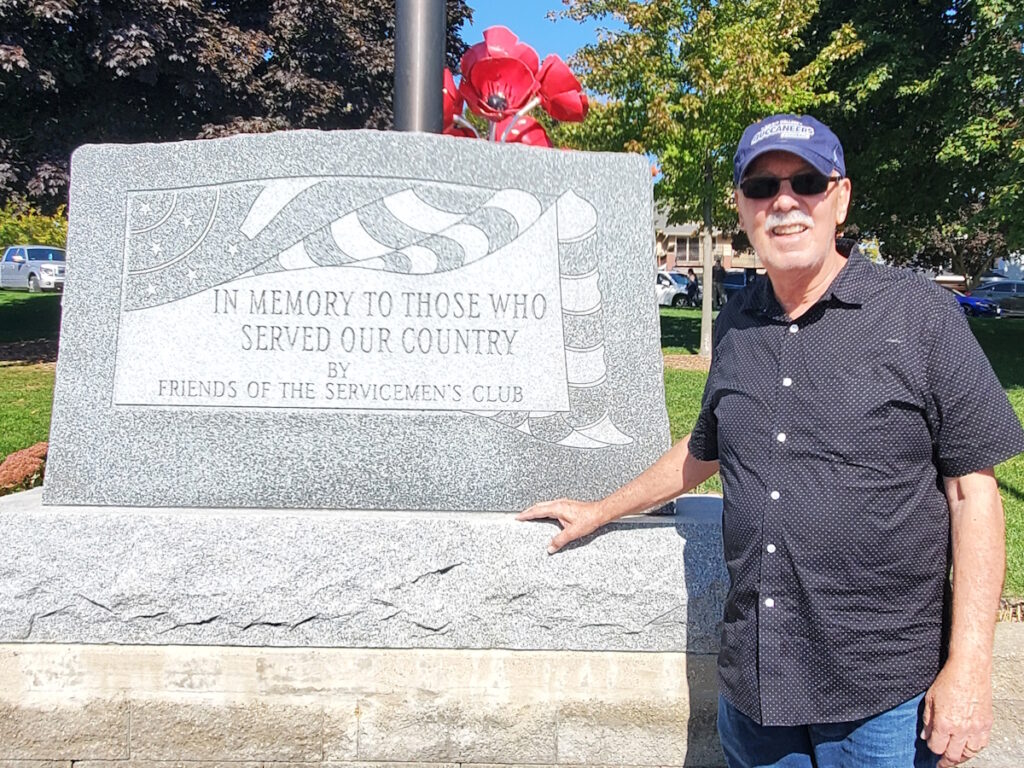
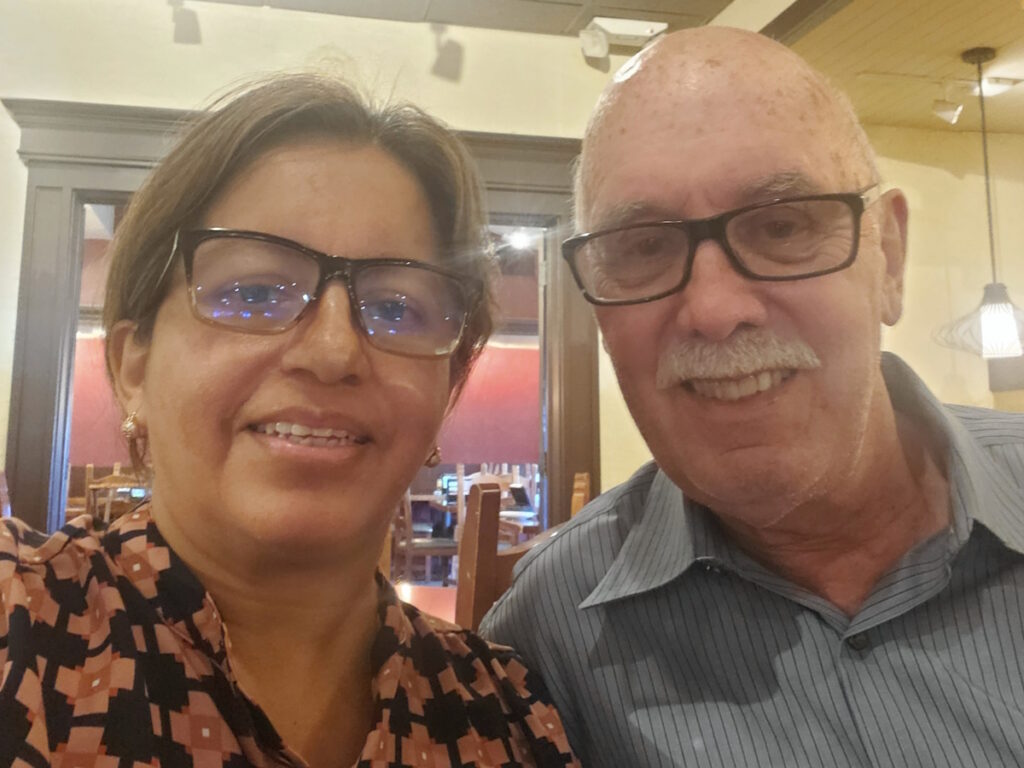
I went to the urologist and he said, “Let’s set you up for surgery and we’ll reduce that again.” Before going to the hospital, he went up with a scope and told me that I had a huge tumor in my bladder. He described it as gargantuan, so that was not good. They decided to operate on me two weeks later. That was how I found out that I had cancer.
I went to City of Hope. I had no idea what I was doing, but I just went there. They had a urologist there, so I went to see him first and then he said, “We’re going to have to connect you with an oncologist.”
Why me? How? No one in my family had cancer. But I’m a survivor, so I knew that I had to move forward. I can’t quit.
The Moment Everything Changed
Why me? How? No one in my family had cancer. But I’m a survivor, so I knew that I had to move forward. I can’t quit. I have a family and obligations. Here I am at 78 and I know what I still have to do in life. My son’s in college and I tell him, “Son, I’m going to be here until you graduate because I want to see you graduate. Then you can start pushing me around. Maybe I can get a chair if I need it.” He said, “Dad, I’ll be there for you.”
It didn’t hit me because I didn’t know about cancer per se. When you don’t have something and you only read about it or hear it on TV, you don’t know exactly what it is. You have to have it for a while to know what it is.
I was in the hospital for about a week and a half to two weeks. I picked up a urinary tract infection and that was terrible. When they went in for the bladder operation, they realized that they had to take out my entire prostate and the lymph nodes that go across the waist. After that, I had one leg that I had trouble with. It’s swollen, but it’s better to be here with a swollen leg than not here. I’m happy that I’m where I am right now, but that’s been a pain, too.
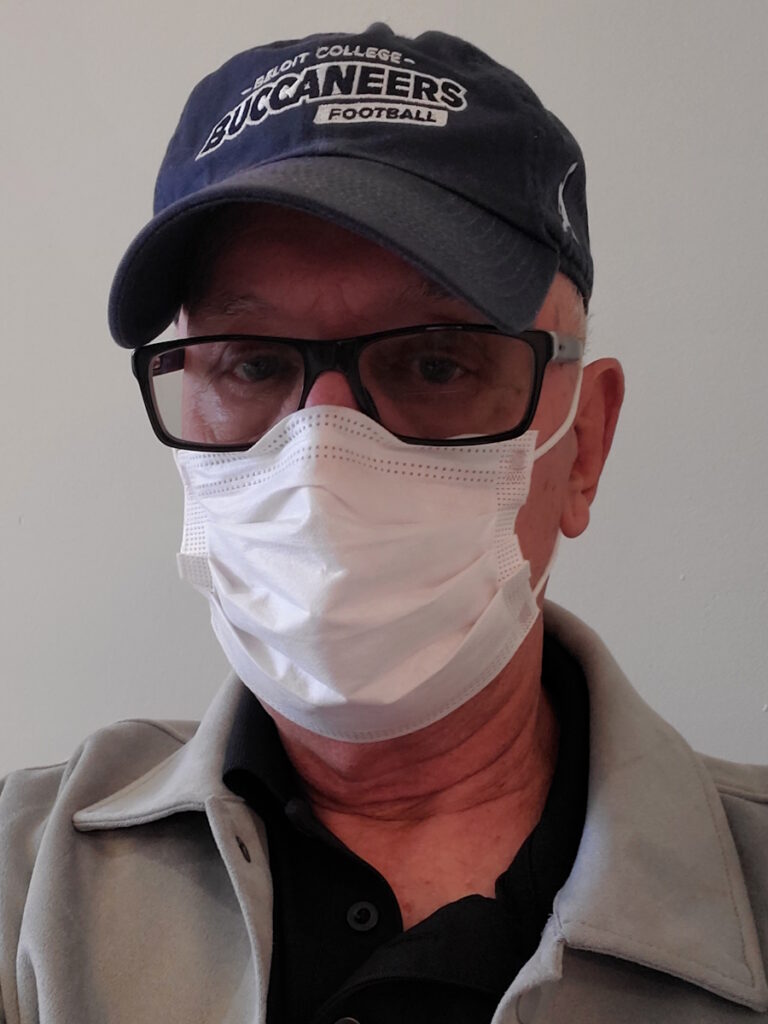
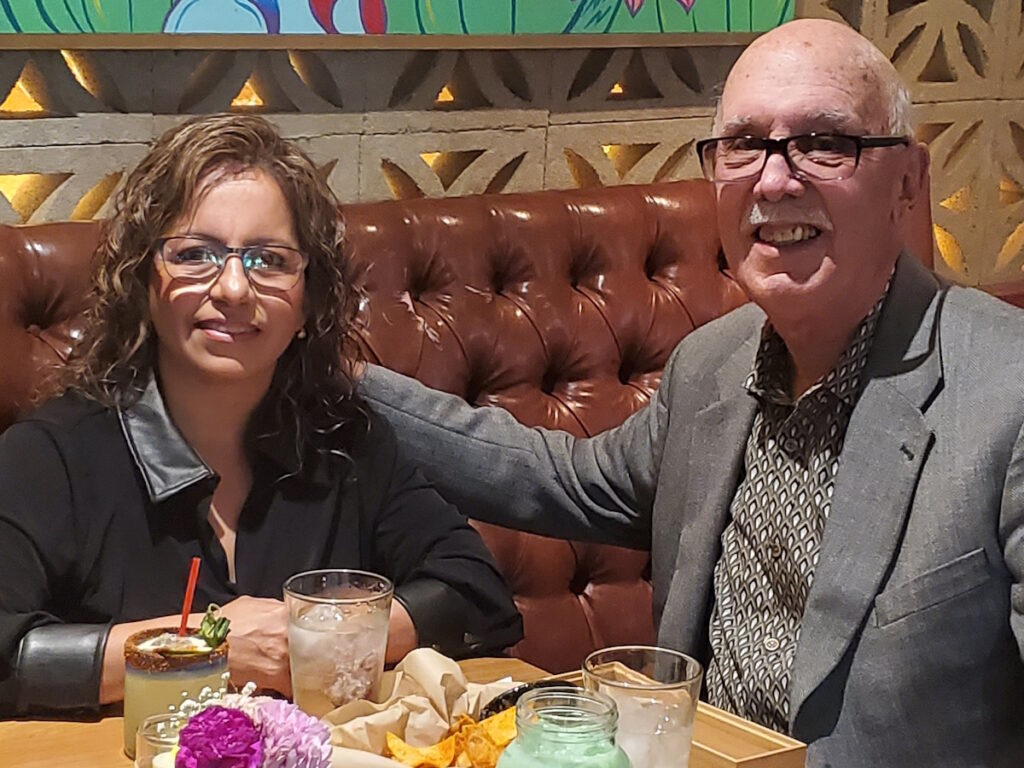
If you sit and talk about it all day and think, “poor me,” all you do is dig a hole and I don’t want to dig one for myself, so I moved on. Now, that doesn’t mean I feel good every day. That doesn’t mean I have all the strength. I can’t tell the difference between being old and having a sickness, so I’m going through two changes in life.
I tell everybody about being old. Every 10 years, your body changes and it starts at 40. I think it waits until you turn that age on your birthday and then it hits you and takes a little bit of something away. You can’t stretch as much. You can’t run as fast. You can’t lift as much. It’s a combination though when you have cancer and you’re getting older. In my case, it’s difficult.
Going on Bladder Cancer Treatment
I went on chemotherapy before the surgery because they had to reduce the size of the tumor. The tumor was too big. I also had some chemo after. I told the doctor that chemo was worse than the cancer. It was terrible.
When I came home, my family took care of me, but I also took great care of myself. I don’t know whether it’s the way that they bend you when they operate on you, but I couldn’t move my right leg for a long time. To move my right leg, I had to lift it off the bed first and then my son would come in and help me stand up. It’s never been as flexible as it was, but gradually, I was able to walk with it. You can tell that I had problems with it.
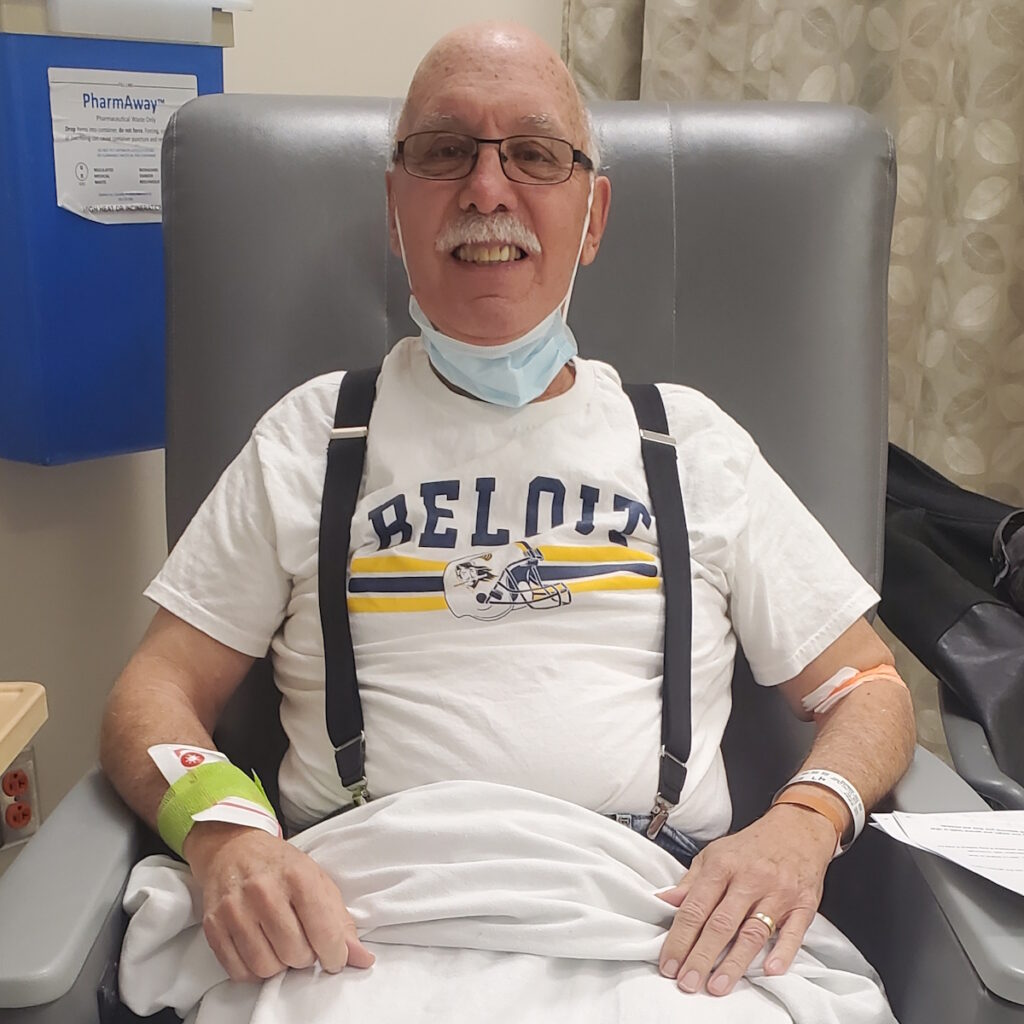
I was in remission for a couple of years… When I went in to see him, he told me that I had a tumor at the base of my spine.
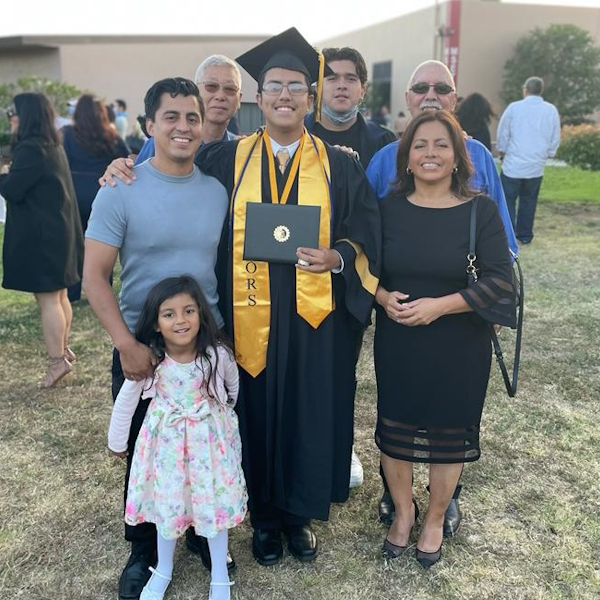
The Cancer Came Back
I was in remission for a couple of years and while I was in remission, they would have me come in to do a scan. I wasn’t taking any medication then.
City of Hope has a website where you can go in and read your reports. I didn’t know what I was reading, but I understand increased, decreased, stayed the same, or first observed. I realized that I had something negative that my doctor was going to tell me.
When I went in to see him, he told me that I had a tumor at the base of my spine and, because of its position, he couldn’t operate. I said, “I’ll tell you what, doc. You do anything you need to do, but don’t give me chemo because I don’t like chemo.”
They decided to try immunotherapy where I had to come in once a month. I didn’t feel good for a day or two, but after that, I was fine. City of Hope found a funding source because when you use a medicine that’s [not yet approved for this condition], the insurance doesn’t pay [cover it for this use]. For two years every month, I went in for my infusion.
Around May 2024, he said, “Let’s give you a couple zaps of radiation.” They had to be very careful that they didn’t hit the area where my kidney was. I had four sessions. We only did that to make sure that the tumor was dead.
Then they did a PET scan and the PET scan said that the tumor was dormant. That was that. Now, I go every three months to get a scan. He did some cancer DNA testing and I was negative.
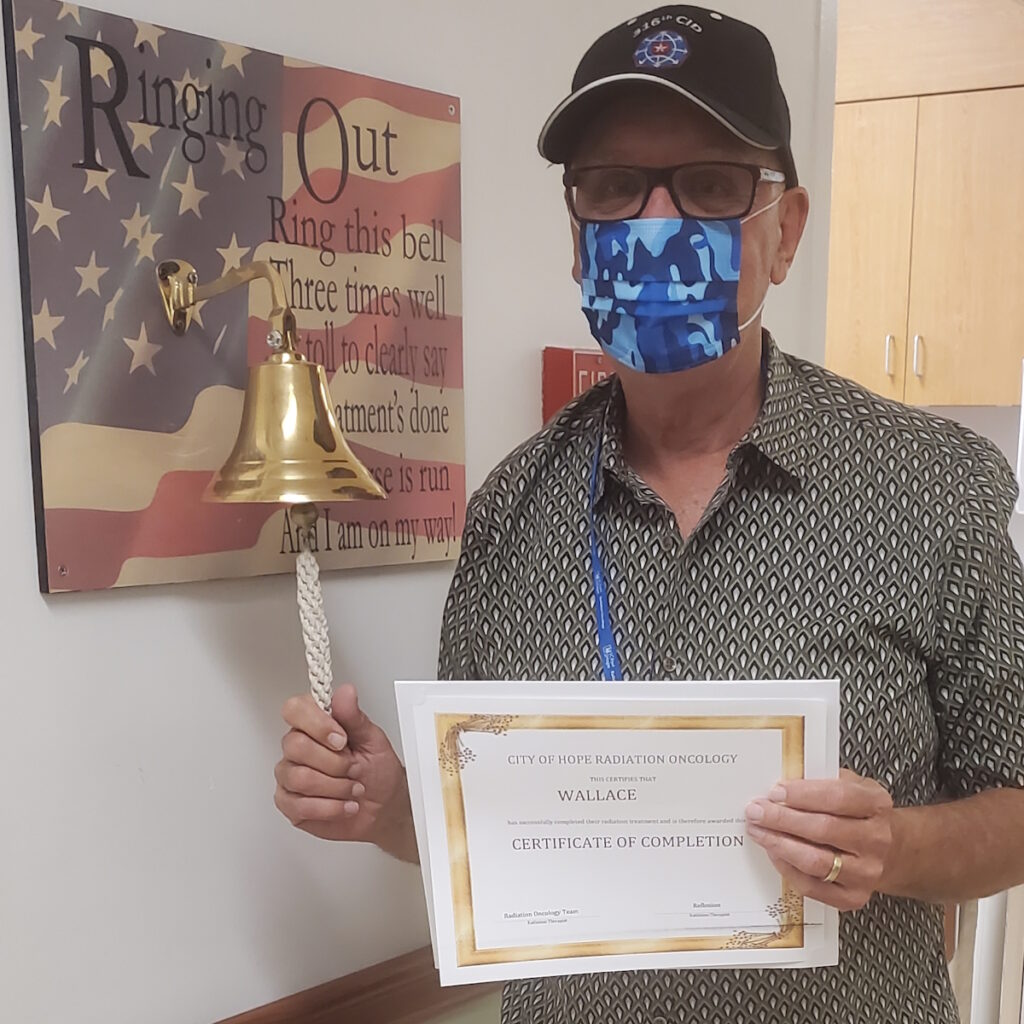
What would stop somebody from getting cancer treatment? Fear. Nothing else.
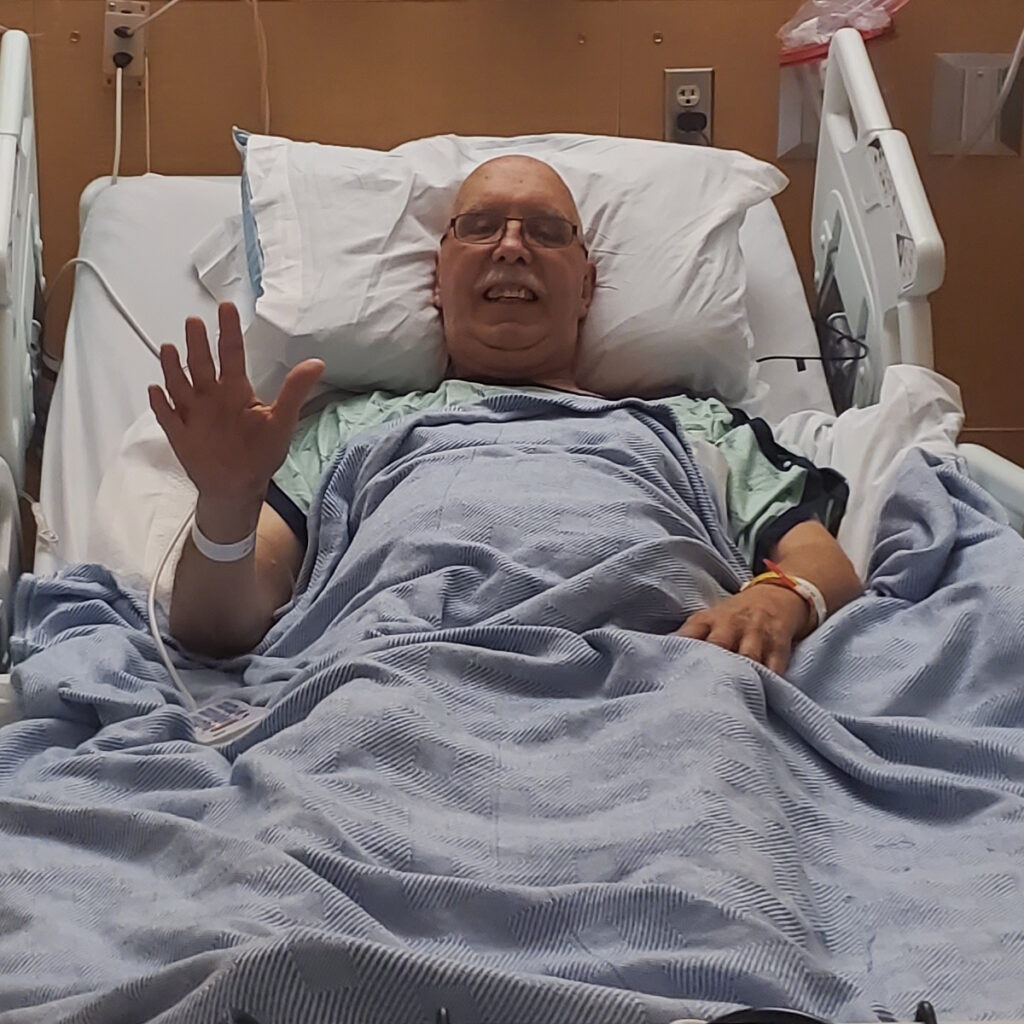
The Importance of Receiving Great Cancer Care
City of Hope had great service. The care there was great. The institution itself is a good institution. They recently opened a new parking lot, so that’s better. I had to always look for parking, but now I’m happy.
I’ve never had any other cancer treatments. Somebody asked me if I had checked other places. I don’t remember how exactly I picked the City of Hope; maybe I Googled cancer and they came up, but I found out that they’re one of the best in the world. I lucked out and I’ve had some very good doctors. Overall, City of Hope has been great.
When you’re going through cancer, the medical side is very important. Either they do the right stuff and it works or you don’t make it.
Processing the Return of the Cancer
I have no fear. What would stop somebody from getting cancer treatment? Fear. Nothing else. In some cases, their fear is based on their history, their family, and how they were brought up. In my family, we never stopped. We always went. My dad and my uncle were in World War II. On the other side of my family, it was all of my uncles. I had an uncle who had frostbite in the foxholes in Korea. If they can do those things, I can handle a little cancer.
How My Family Has Supported Me
One thing you need is your family. If you have people in your family helping you, it makes a difference. I have two sons. The older one lives in Fresno and the younger one is in Wisconsin. They help me when I have problems that become big. I also have a few dogs. Dogs love you. They never stop. For those who are going through cancer, your family is a big thing. Try to keep the stress down because the disease itself is stressful enough.
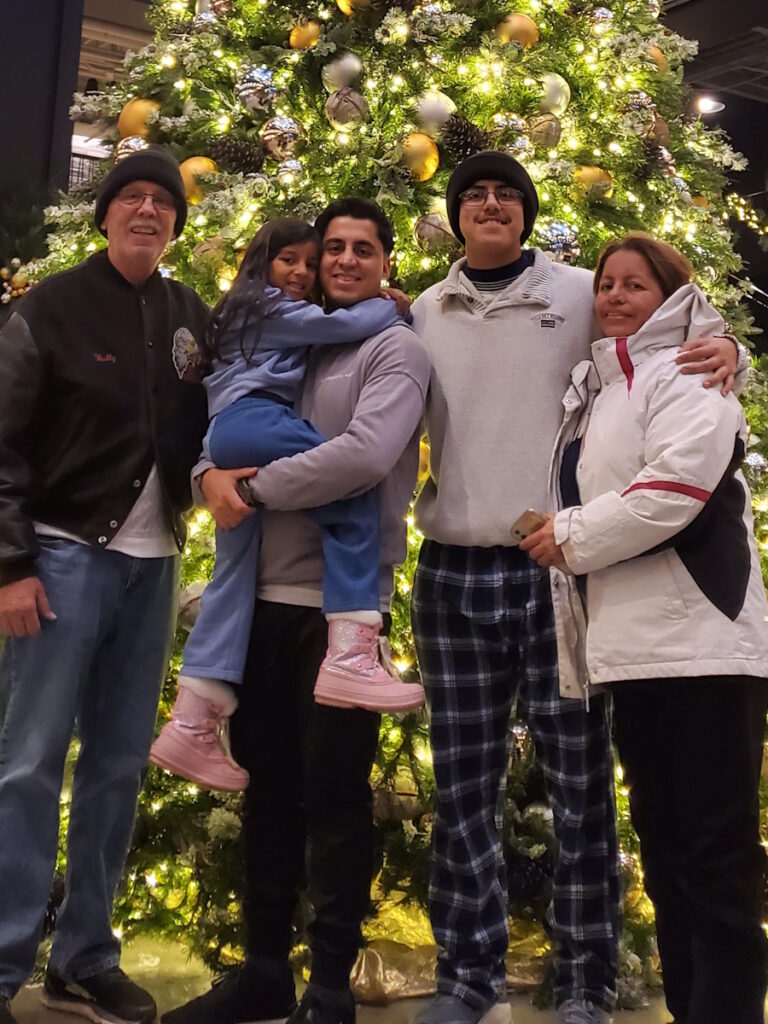
Get yourself checked regularly. Make sure you listen to what your doctor says and have your tests done.
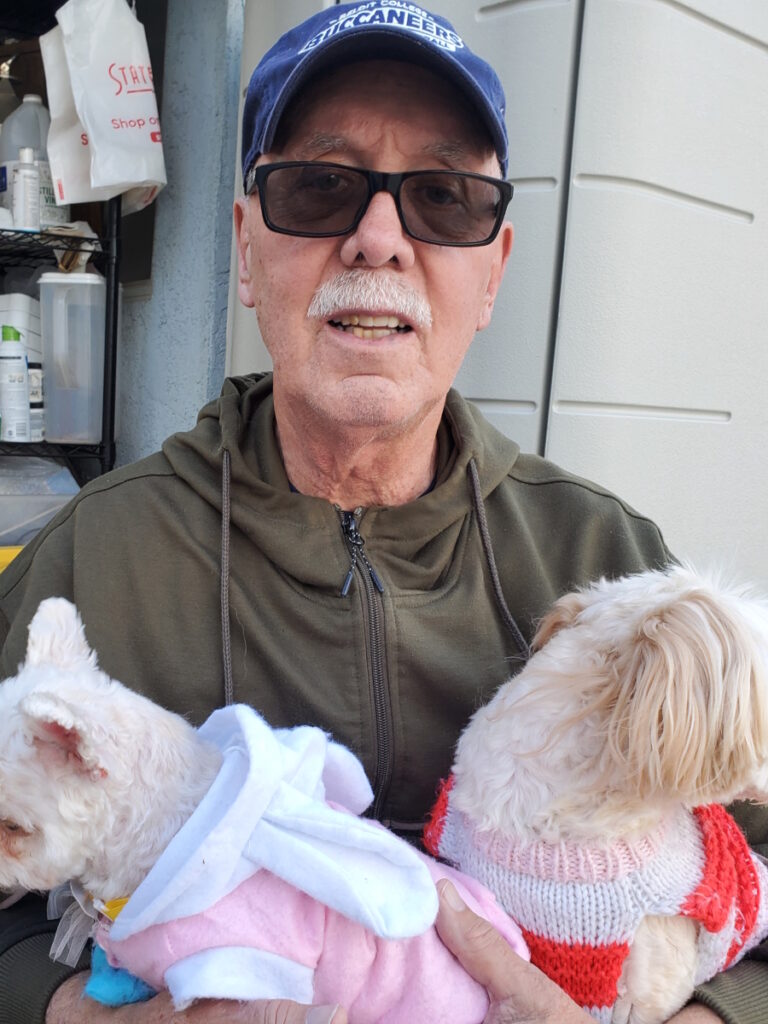
What Cancer Has Taught Me
I have my Army friends and my Gamma Phi Fraternity buddies in Pittsburgh. Every year, we get together at my friend’s mansion on a lake in West Virginia. We sit on the lake, drink beer, and talk about how things used to be. You see the guys falling out of the picture, so you start to have more appreciation for every single day and every single moment. You laugh as much as you can. You don’t worry about the small things because you may not have anything if you don’t make it.
Getting old is the other thing. I tried several times in my life to get younger and it doesn’t work. If I go out and run too hard, instead of getting in shape, I start to hurt my heart. I used to be a runner, but age takes its toll.
You have to know what is bothering you at the moment. Is it your age, the cancer, or the medicine? Right now, I’m not taking any meds. I don’t take blood pressure meds or cancer meds. I take vitamins and that’s all.
The doctor said to do it and I did it. That’s the soldier in me. You keep soldiering. That’s what happened. I didn’t have any second thoughts about it. I just went and did it.
My Message to You
Always have hope. Be strong. Grab that sickness by the neck and twist it. Know that if you work hard and do your best, there’s a good chance that you’re going to beat it. It’s not 100%, but you have a good chance.
Get yourself checked regularly. Make sure you listen to what your doctor says and have your tests done.
If you have it, you can beat it. If you don’t have it, don’t do the things to get cancer. There are a few things that they know are associated with cancer. If it comes your way, knock it out, man. Knock it out.
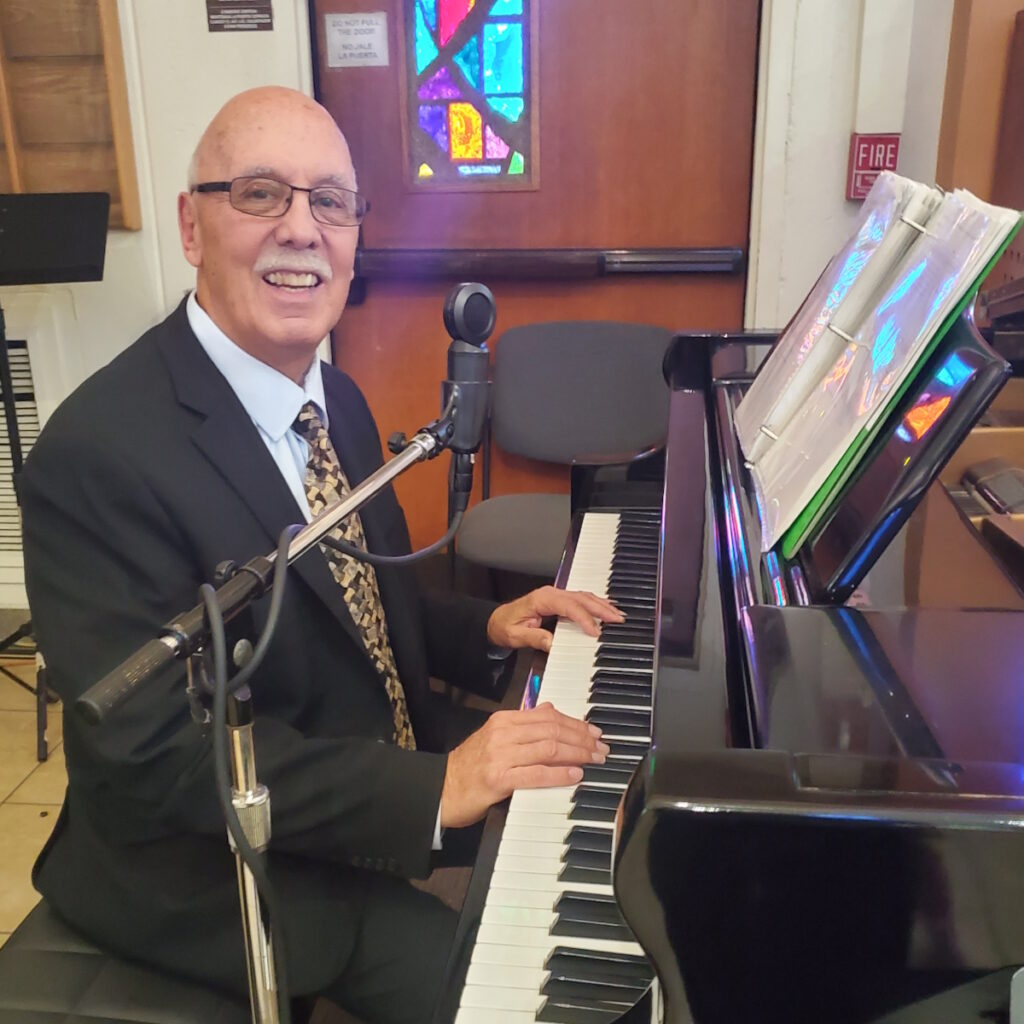
Thank you to Imerman Angels for their partnership. Imerman Angels is here to provide comfort and understanding for all cancer fighters, survivors, previvors, and care partners through a personalized, one-on-one connection with someone who has been there.
More Bladder Cancer Patient Stories
Laurent Gemenick, Bladder Cancer
Symptom: Presence of blood in urine
Treatment: Surgery: transurethral resection of bladder tumor or TURBT
Jon T., Locally Advanced Muscle-Invasive Bladder Cancer
Symptom: Darkening urine, blood in urine, dull right flank pain
Treatments: Surgery(transurethral resection of bladder tumor or TURBT), antibody-drug conjugate, chemotherapy
Michael V., Bladder Cancer (Non-Invasive High-Grade Papillary Urothelial Carcinoma), Stage 1
Symptoms: Frequent urination, burning sensation when urinating
Treatments: Surgery (transurethral resection of bladder tumor or TURBT), immunotherapy (Bacillus Calmette-Guérin or BCG treatment)
Dorinda G., Bladder Cancer
Symptom: A significant amount of blood in the urine
Treatments: Surgery (transurethral resection of bladder tumor/TURBT, surgery for papillary lesion), immunotherapy (BCG), chemotherapy
Healing Together: A Mother and Daughter Navigate High-Grade Bladder Cancer
Mary Beth’s story about caregiving starts with an important awareness message about female bladder cancer symptoms.
Danny G., Non-Muscle Invasive Bladder Cancer
Symptoms: Fatigue, back pain, erectile dysfunction, nausea
Treatments: Surgery (transurethral resection of bladder tumor or TURBT), chemotherapy, immunotherapy
Bladder Cancer Resources
Bladder Cancer Causes & Symptoms
Understand common bladder cancer causes, urine color, symptoms, and treatments as described by real patients.
...
Bladder Cancer Series
Bladder cancer patients Ebony & LaSonya talk about their cancer journey, including their first symptoms, how they processed their diagnosis, treatment options, and how they found support. Dr. Samuel Washington, a urologic surgeon, also gives an overview of bladder cancer and its treatments.
...
Diagnosis and Treatment for Bladder Cancer
Learn about the diagnosis and treatment process from bladder cancer survivors and medical experts. Discover diagnosis and treatment options./p>
...
